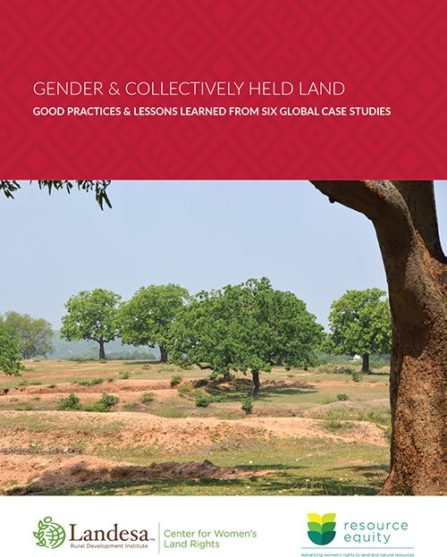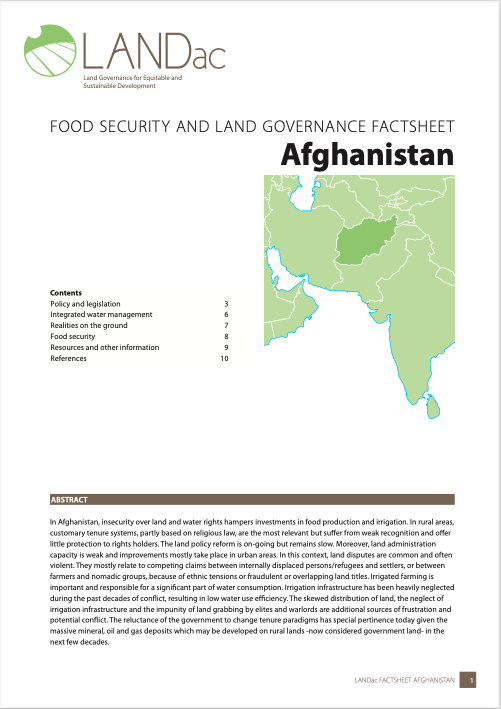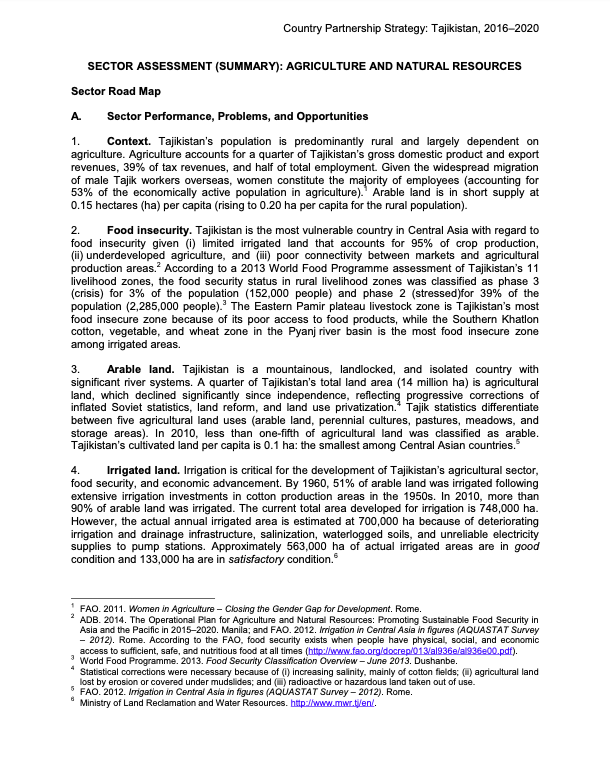Conflicts, security and marginalisation: Institutional change of the pastoral commons in a 'glocal' world
This paper argues that pastoral commons are under increasing pressure not just from overuse by pastoralists themselves, but from land management policies. Since colonial times, these have been based on a persistent misconception of the nature of pastoral economies and combined with increasing land alienation and fragmentation through government policies and covert privatisation of pastures.
Land in German Development Cooperation: Guiding principles, challenges and prospects for the future.
“Land matters” – more than ever! Can land be dealt with like other resources or – in terms of an economic perspective– forms of capital. Or does it attract particular meanings, sentiments, interests, acquisition strategies or social relations?
Allocating farmland to rural women - new insights
Land reform in South Africa intends to redress racial imbalances with regard to ownership and access to land. On the surface, the various strategy documents also talk to transferring land to black women, the youth and the disabled. This article examines interesting patterns that are emerging with respect to gender relations and land ownership driven by land reform including mounting evidence of exclusive female ownership and co-ownership of land among land reform recipient households.
SYNTHESIS REPORT – GENDER & COLLECTIVELY HELD LAND
GOOD PRACTICES AND LESSONS LEARNED FROM SIX GLOBAL CASE STUDIES
Many studies have shown the benefits to women of secure rights to land: when their rights are secure, their status in the community and within the household can increase, their income can increase, and they and their families are less likely to be underweight or malnourished.
Food Security and Governance Factsheet: Afghanistan
In Afghanistan, insecurity over land and water rights hampers investments in food production and irrigation. In rural areas, customary tenure systems, partly based on religious law, are the most relevant but suffer from weak recognition and offer little protection to rights holders. The land policy reform is on-going but remains slow. Moreover, land administration capacity is weak and improvements mostly take place in urban areas. In this context, land disputes are common and often violent.
Country Partnership Strategy: Tajikistan, 2016–2020
Tajikistan’s population is predominantly rural and largely dependent on agriculture. Agriculture accounts for a quarter of Tajikistan’s gross domestic product and export revenues, 39% of tax revenues, and half of total employment. Given the widespread migration of male Tajik workers overseas, women constitute the majority of employees (accounting for 53% of the economically active population in agriculture). Arable land is in short supply at 0.15 hectares (ha) per capita (rising to 0.20 ha per capita for the rural population).
The Political Economy of Urban Land Reform in Hawaii
In the mid-1960s 26 percent of the single-family homes in Honolulu were on leased land. Dissatisfaction with leasehold led to reform legislation in 1967, allowing lessees to buy leased land. By 1991 only 3.6 percent of the homes were on leased land. We examine why landowners elected to lease rather than sell land and attribute the rise of leasehold to legal constraints on land sales by large estates and the federal tax code. Ideological forces initiated land reform in 1967, but rent-seeking forces captured the process in the mid-1970s.
Quels enjeux liés à l’arrivée d’investisseurs agro-industriels étrangers en République du Congo ?
Résumé – À l’heure où l’agriculture familiale est présentée par les institutions internationales comme le meilleur moyen pour garantir les sécurités alimentaire et foncière, il convient de discuter des enjeux relatifs à l’arrivée d’agro-industriels étrangers investissant dans le foncier agricole en Afrique subsaharienne. Pour cela, nous revenons dans un premier temps sur les situations agricole et alimentaire de la République du Congo.
Facing the challenges of land monitoring in the framework and guidelines on land policy in Africa towards agenda 2063 and the 2030 agenda for sustainable development
The adoption of Agenda 2063 at the continental level, and the 2030 Agenda for Sustainable Development at the global level, requires a high level of collection and collation of quality, timely, reliable and dis-aggregated data at all levels of the development process, including land, to inform decisions, enable all stakeholders to track progress and make the necessary adjustments to ensure transparency and mutual accountability in the continent and globally.







